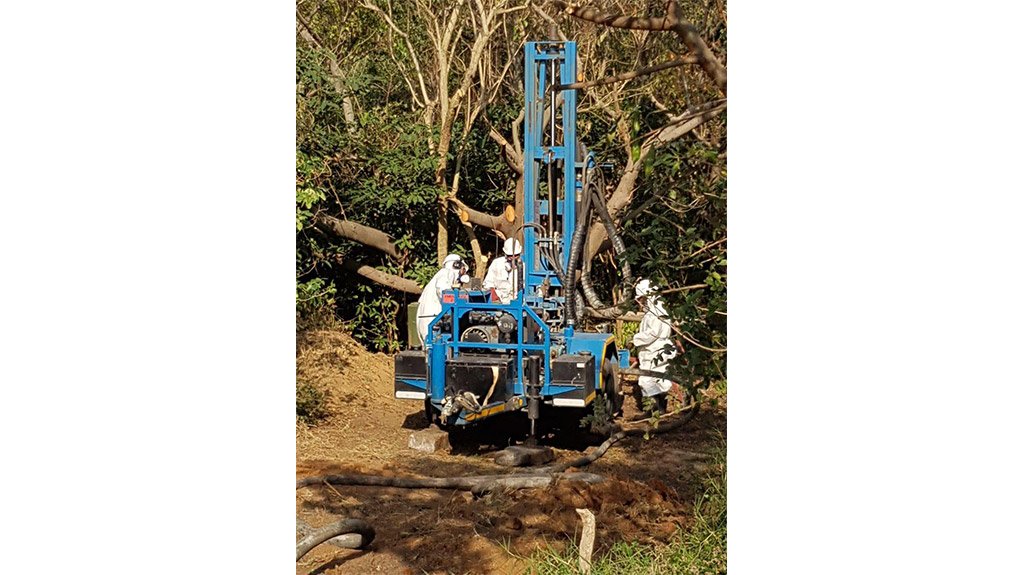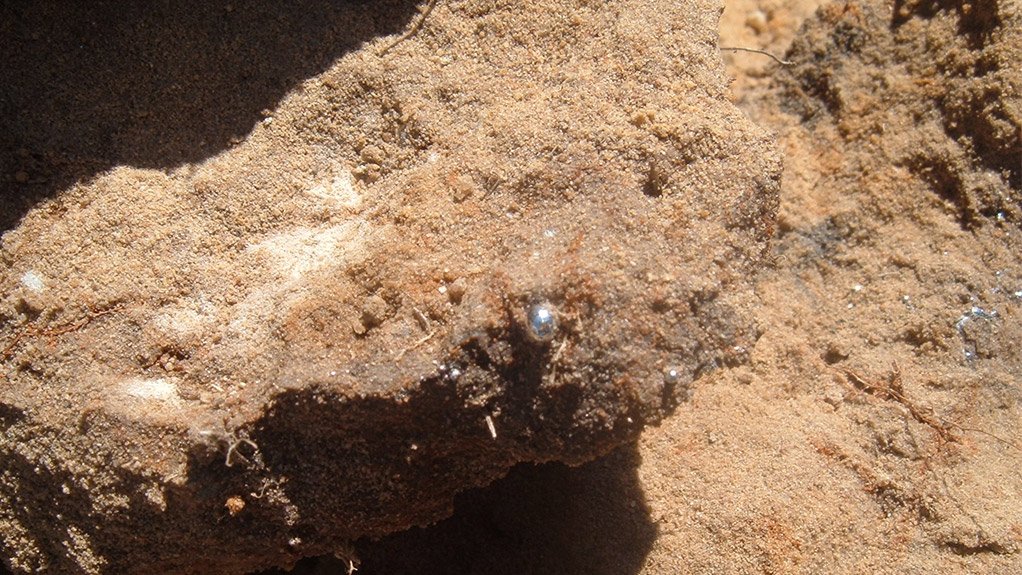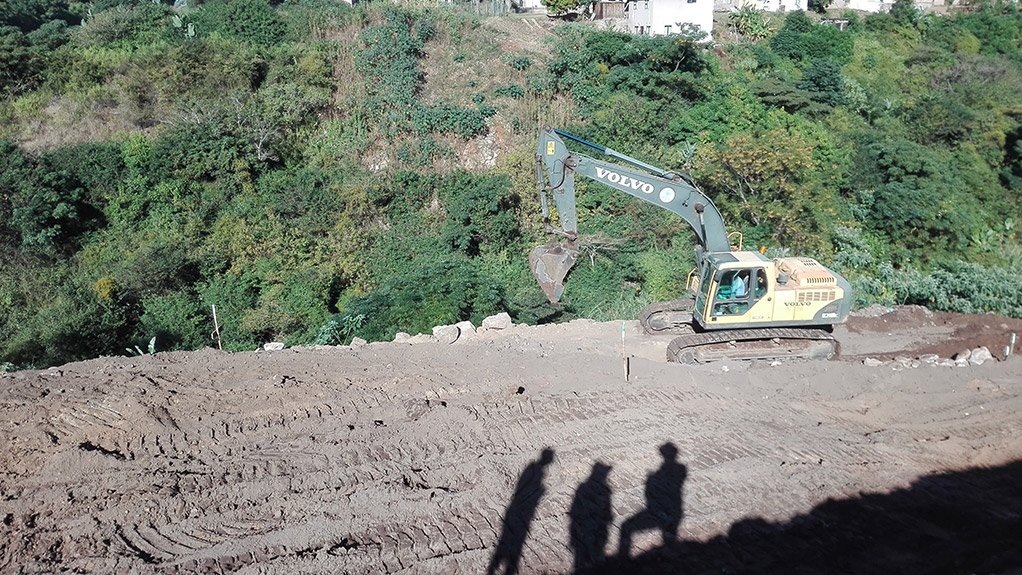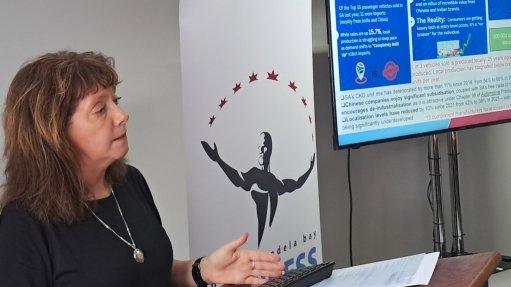Industries must address legacy contamination – firm




CONTAMINATED SITE Significant harm has arisen from a legacy of poor waste management, particularly within the chemicals industry
ACCOUNTABLE INDUSTRY Industry is becoming more accountable for contamination and authorities are quickly notified when there are leaks
ENVIRONMENTAL CONSERVATION Combating legacy contamination and preventing further contamination of South Africa’s resources is critical to the sustainability of the country and its natural resources
Despite a significant improvement in the parameters outlined by current environmental policy – often diligently upheld by the local chemicals and petrochemicals industries – multidisciplinary engineering consultant SRK Consulting states that historic practices caused by lack of knowledge have created a legacy of environmental contamination issues that these industries must now address.
SRK principal geochemist and associate partner Richard O’Brien tells Engineering News that South Africa did not have any specific waste management legislation governing the disposal of hazardous waste produced by the heavy chemicals and petrochemicals industries prior to 1989. Subsequently, waste management during that period was often undertaken as an in-house industry process that took place at the chemicals or petrochemicals processing sites at the discretion of producers, he adds.
The lack of governance further led to insufficient measures being implemented by hazardous-waste producers to limit the environmental impact caused by their production processes.
O’Brien avers that, as a result, many industry players now have to address the damage done by legacy contamination.
Thus, while SRK Consulting is noticing the significant harm that has arisen from a legacy of poor waste management – particularly within the chemicals industry – O’Brien says “at the time, companies considered their responses to hazardous waste best practice, appropriate and affordable”.
He adds that the dilemma of legacy contamination is made more complex by the significant new entrants in the chemicals and petrochemicals industries in recent years.
This expansion in the retail market of these industries has resulted in a significant number of new smaller retailers entering the market. Several retail chemicals and petrochemicals sites have, subsequently, changed hands from larger companies to new market entrants.
“There is an important need among new owners entering the market to understand environmental liability – especially issues of historical liability relating to existing pollution or contamination of the environment. Resolving liability where multiple parties are involved is tricky, and must be dealt with in well-drafted agreements that are properly informed by technical studies.”
O’Brien adds that, while the attitude towards environmental protection and responsibility has matured in these industries in the past three decades, for smaller-scale operations – such as dry cleaners and paint factories – financial resources and expertise to deal with the complex issue of legacy waste remains a concern. As these companies often do not have formal liability statements linked to their financial accounting or environmental insurance, they are often unable to address contamination when it is reported.
However, despite the challenges smaller retailers may face, he stresses that processes to combat legacy contamination and prevent further contamination of South Africa’s resources is critical to the sustainability of the country and its natural resources. The country is grappling with water shortages that are making it ever more reliant on using groundwater resources, but the impact of contamination adversely affects its quality and usability while creating significant legal liability for those responsible for further contamination.
Property value is also directly affected, as the resale potential of a brownfield industrial site will be compromised if it has been contaminated. “Financial institutions are requiring site assessments to be conducted before they will issue bonds against industrial land. Contamination could even lead to a complete loss of the use of a once valuable property,” O’Brien warns.
Beyond Legacy Contamination Concerns
O’Brien highlights that considerable environmental damage is also caused by the “dripping tap” syndrome, where relatively small releases of contaminants are not detected timeously – such as a leaking flange on an underground pipeline – where the loss to the system may not be easily noticeable, but persists over time.
He sympathises with smaller producers that do not have access to the same levels of expertise and financial means as their larger counterparts.
In cases where smaller producers are battling to address contamination concerns, SRK recommends a risk-based approach that can result in significant savings for such producers, he adds.
A risk-based approach focuses remedial efforts to prevent and rectify those aspects of contamination that pose an unacceptable risk to human health or the environment, thus minimising cost incurred by companies.
SRK senior environmental scientist and land contamination management forum Network for Industrially Contaminated Land in Africa steering committee member Tracey Drew states that SRK offers guidance to deal with contamination, as well as several services in the assessment of soil and groundwater impacts and solutions to address various forms of contamination.
“The multifaceted capacity of SRK encompasses a range of scientific and engineering disciplines, enabling us to apply not only environmental expertise but also civil and geotechnical engineering, water and other focus areas.”
This enables SRK to help companies of all capacities to comprehensively address and prevent environmental contamination, says Drew. If the remediation of a site requires additional licences – such as water-use licences, waste licences and atmospheric emission licences – SRK can also assist companies in acquiring them, she adds.
The company also offers an audit facility to assess how well a site is being managed, including input on how well an environmental management plan is suited to specific conditions. Drew stresses that an audit is also critical in situations where industrial landowners who have a tenant must ensure that the tenant is managing waste responsibly or when a property is changing ownership. She states that this is vital to risk mitigation, as it is the landowner who is liable for the remediation costs if the polluter is not traceable or is bankrupt.
Drew says industry is becoming more accountable for contamination, and authorities are quickly notified when there are leaks. There is also more traceability than before, and enforcement of environmental legislation by the authorities is improving rapidly.
Article Enquiry
Email Article
Save Article
Feedback
To advertise email advertising@creamermedia.co.za or click here
Press Office
Announcements
What's On
Subscribe to improve your user experience...
Option 1 (equivalent of R125 a month):
Receive a weekly copy of Creamer Media's Engineering News & Mining Weekly magazine
(print copy for those in South Africa and e-magazine for those outside of South Africa)
Receive daily email newsletters
Access to full search results
Access archive of magazine back copies
Access to Projects in Progress
Access to ONE Research Report of your choice in PDF format
Option 2 (equivalent of R375 a month):
All benefits from Option 1
PLUS
Access to Creamer Media's Research Channel Africa for ALL Research Reports, in PDF format, on various industrial and mining sectors
including Electricity; Water; Energy Transition; Hydrogen; Roads, Rail and Ports; Coal; Gold; Platinum; Battery Metals; etc.
Already a subscriber?
Forgotten your password?
Receive weekly copy of Creamer Media's Engineering News & Mining Weekly magazine (print copy for those in South Africa and e-magazine for those outside of South Africa)
➕
Recieve daily email newsletters
➕
Access to full search results
➕
Access archive of magazine back copies
➕
Access to Projects in Progress
➕
Access to ONE Research Report of your choice in PDF format
RESEARCH CHANNEL AFRICA
R4500 (equivalent of R375 a month)
SUBSCRIBEAll benefits from Option 1
➕
Access to Creamer Media's Research Channel Africa for ALL Research Reports on various industrial and mining sectors, in PDF format, including on:
Electricity
➕
Water
➕
Energy Transition
➕
Hydrogen
➕
Roads, Rail and Ports
➕
Coal
➕
Gold
➕
Platinum
➕
Battery Metals
➕
etc.
Receive all benefits from Option 1 or Option 2 delivered to numerous people at your company
➕
Multiple User names and Passwords for simultaneous log-ins
➕
Intranet integration access to all in your organisation





















